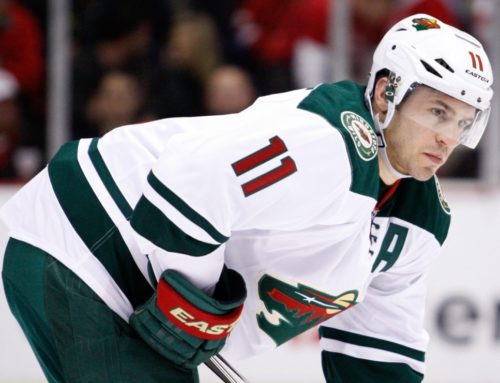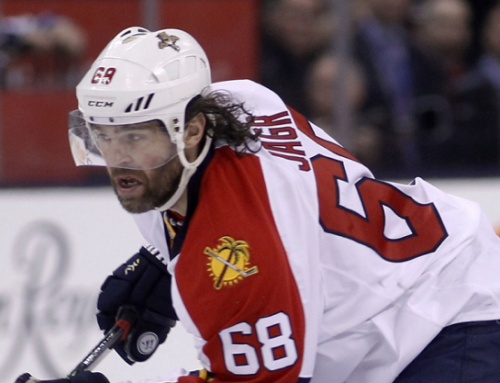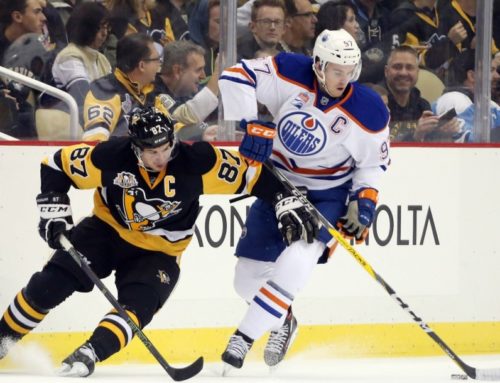
How much does tax rate affect a free agent's chosen destination?
We have it so hard here in Canada. Our teams are at a competitive disadvantage when it comes to attracting and signing free agents. Or so we are told.
A day before Steven Stamkos decided to re-sign with the Tampa Bay Lightning, we received an article by Joe Smith telling us that this was the most likeliest of outcomes because Toronto was at a tax disadvantage.
#TBLightning still in mix for Stamkos, loses advantage of 8th yr Fri How does $8.5/8 w TB compares to $10/7 w others https://t.co/57egsxHtFv
— Joe Smith (@TBTimes_JSmith) June 28, 2016
This was not the only mention of it. In fact, Michael Traikos delivered a similar message right the playoffs started.
The article by Smith has some calculations as it pertained to the Maple Leafs, but Traikos’ article broke everything down by province and state showing what the tax rates were in each region.
No Canada: Higher tax rates 'erect roadblocks' for teams trying to entice free agents to Canada: https://t.co/DdqS9AxCuv
— Calgary Herald (@calgaryherald) April 13, 2016
It came as no surprise that Ontario and Quebec were the most disadvantaged regions when it came to income tax rates. Manitoba came in fourth, while British Columbia and Alberta were slightly over on the wrong side of the midway point.
And we are told this by Smith, Traikos, and the like to stir up some emotion or empathy for our poor Canadian teams. Our teams cannot win because they cannot sign free agents because ultimately the system is ever so slightly rigged against them.
As Charles Lammam states to Traikos, “States with lower tax rates tend to sign more skilled players. We cannot ignore the effect of the tax system. When you look at Canada and hockey, in particular, teams in Ontario are at a disadvantage, especially when you look at Ontario’s statutory rate. It’s among the highest in the world and certainly higher than most U.S. states.”
Even player agent Steve Bartlett identifies, “[If] you’re smart you realize, ‘I have to run the calculation.’ It isn’t always just the number that’s thrown out there that’s the real number. And, believe me, the teams that have the advantage are more than willing to point that out to you, too”.
What hogwash.
First of all, players are paid in US dollars so if the Canadian dollar is lower that means their earned dollar buys more. This is mentioned in Traikos’ article but is glossed over to focus on how it affects ownership not the player.
That the currency conversion works against ownership is not as big a deal for teams like Toronto or Montreal but it could hamper smaller market teams like Winnipeg. Then again, those smaller teams were always at a competitive disadvantage.
My second point is secondary incomes, namely sponsorship and promotional gigs. Where is it more likely to happen and be effective for hockey players, in Canada or in a sun belt state?
Thirdly, let us take a look at what the Canadian teams did this summer with unrestricted free agents (dollars in millions):
|
Team |
UFA Players |
Total $ Over All Years |
Yearly $ |
|
Calgary |
2 |
19.7 |
6.2 |
|
Edmonton |
2 |
42.8 |
6.8 |
|
Montreal |
3 |
8.0 |
7.1 |
|
Ottawa |
1 |
0.9 |
0.9 |
|
Toronto |
2 |
12.2 |
4.7 |
|
Vancouver |
3 |
37.6 |
7.6 |
|
Winnipeg |
3 |
5.5
📢 advertisement:
|
3.4 |
Looks to me that our Canadian teams were able to spend their money. Some might be a bit more foolish than others, but having a lower tax rate would not alter that condition.
Fourthly, as mentioned in this article by Eric Duhatschek, his panelist Craig Button turns the glass around, “I would look at it this way: How many UFAs left Canada? The Sedins didn’t leave. Daniel Alfredsson didn’t leave until right at the very end. Mats Sundin didn’t leave Toronto until he was really forced out. P.K. Subban signed up for the long term. Dustin Byfuglien isn’t leaving. I think it has as much to do with the foundation of the team – and the player concluding “this is a good place for me.”
I asked some of my favorite NHL analysts to ponder what went wrong for Canada's 7 NHL teams. The lively result here: https://t.co/Ikro3ccDs6
— Eric Duhatschek (@eduhatschek) April 9, 2016
He adds, “Players become part of a team at a young age and the good ones are valued and the team lets them know they’re valued. They don’t want to go anywhere. As much as we say UFAs are not coming to Canada, the Canadian UFAs aren’t leaving either.”
With that you can see why Winnipeg just signed Mark Scheifele to an eight-year contract. They hope he will build roots and want to stay when he becomes a UFA later on in his career.
This is what the Canadian teams did so far with their restricted free agents so far, but we still have some time. The summer is not over yet, and arbitration will alter things.
|
Team |
RFA Players |
Total $ Over All Years |
Yearly $ |
|
Calgary |
0 |
– |
– |
|
Edmonton |
0 |
– |
– |
|
Montreal |
1 |
24.3 |
3.9 |
|
Ottawa |
0 |
– |
– |
|
Toronto |
1 |
25.0 |
5.0 |
|
Vancouver |
1 |
0.8 |
0.8 |
|
Winnipeg |
2 |
51.3 |
7.2 |
My final point is that tax rates ultimately do not matter. Players want to go where they think they can win.
Ask, which province or state has the third highest income tax rate? The answer is California. How many players in the past were happy to sign with the Kings, Ducks and Sharks once they became winners?
Now ask the question with a slight twist to focus on the regions with the lowest taxes, how many players wanted to sign with Dallas, Florida or Chicago before they started to win?
While there might be a few players who end up selecting one team over another because they will make a post-tax salary that is greater, the vast majority will choose the team they feel has the best chance to succeed.
That is what the players are taxed to do. Win.
The Contrarian – It Was Not Arbitrary
2 Comments
Leave A Comment
You must be logged in to post a comment.





 WSH
WSH CAR
CAR VGK
VGK EDM
EDM TOR
TOR FLA
FLA VAN
VAN WPG
WPG T.B
T.B

I tend to agree with this since they make so much money to begin with. 5-10% less salary for the chance to win a cup is likely not a big deal when your salary is 4-8 million .
There’s another aspect to this that works in favour of teams – teams in low-tax jurisdictions can effectively offer less money and use taxes as justification. I would be willing to bet that players have taken less salary than offered elsewhere (Ken’s 5-10% seems reasonable) due to tax reasons, which lowers a team’s cap hit.
Additionally, if taxes are really an issue for players, there should be some evidence of this from players who use their (limited) NTCs to block trades to high-tax teams. That would be an interesting study.